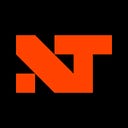Explaining Cash & Physical Settlements in Futures
An important aspect to consider when trading futures is whether the contract traded is cash or physically settled. All futures contracts have a set lifetime before they expire and are either cash-settled or physically delivered at expiration.
It is important to understand the difference since there are important implications based on how a futures contract ends.
Learn more about cash & physical settlements in this 3-minute video:
Cash-Settled or Physically Delivered?
Cash-settled contracts include financially-derived contracts such as equity index interest rate futures.
If the underlying asset of the futures product is a physical item that can be touched, then it is a physically deliverable futures product, also known as a “deliverable product.” Common deliverable products include crude oil, natural gas, gold, soybeans, corn & wheat futures.
- Reminder: Know if your futures contract is a physical commodity or cash-settled product. If uncertain, contact your broker.
What Happens When Cash-Settled Futures Expire?
Cash-settled futures expire directly into cash, meaning at expiration a credit or debit is issued, marking either a profit or loss in your account. For example, when a contract of cash-settled E-mini Nasdaq futures expires, the trader receives either a cash credit or debit based on the product’s final settlement price.
What Happens When Deliverable Futures Expire?
Physically delivered contracts such as gold, oil or soybeans technically require the investor to either produce or take delivery of the underlying commodity upon expiration. In other words, if you carry a deliverable product through expiration, you could be either assigned or delivered the underlying asset.
Since most physical commodity traders do not wish to reach delivery, it is important to be aware of the following 2 dates:
- First Notice Date — the first day the exchange can assign physical delivery to investors of futures contracts
- Last Trade Date — the last trading day of a futures contract before delivery of the underlying asset must take place
Physical commodity trading is prohibited from the business day preceding the earlier of the two dates above through the Last Trade Date. These dates vary by contract and can be found on the appropriate exchange’s website.
To avoid delivery, it is the responsibility of the individual trader to either close or roll over futures positions before the contract reaches maturity.
Get Started with NinjaTrader
NinjaTrader supports more than 500,000 traders worldwide with a powerful & user-friendly trading platform, deep discount commissions and world-class support. NinjaTrader is always free to use for advanced charting, strategy backtesting and an immersive sim trading experience.
Download NinjaTrader’s award-winning trading platform & get started with a free trading demo today!
This article is intended for educational and informational purposes only and should not be viewed as a solicitation or recommendation of any product, service or trading strategy. It includes content from independent persons or companies that are in no manner affiliated with NinjaTrader Group (NTG) or any of its affiliates. The content and opinions expressed in this article do not necessarily reflect the official policy or position of NinjaTrader or any of its affiliates.
